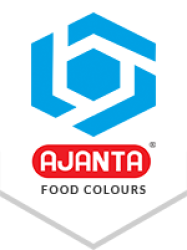Thailand, officially known as the Kingdom of Thailand, is one of Southeast Asia’s most dynamic economies. The country is famous for its vibrant culture, tropical beaches, and rich heritage around the world, and its strategic location in the heart of the ASEAN region, making it a major hub for trade, tourism, and industrial development. With a stable infrastructure, skilled workforce, and pro-business policies of the Thai government attracts the global investors and manufacturers that are looking to expand their business in the Asian market.
Manufacturing is a crucial pillar of Thailand’s economy as it contributes nearly 35% to the national GDP and employs millions of people across the country. From cosmetics and personal care products to food processing, Thailand’s manufacturing sector is highly diversified and export-driven. The government’s Thailand 4.0 initiative and the Eastern Economic Corridor (EEC) work as a magnet to encourage global manufacturers to invest and set up their manufacturing units in the country.
In Thailand’s booming manufacturing industry, colours play a vital role in product development, branding, and consumer appeal. Colours enhance the visual appeal of food and beverage products, ensure the consistency in cosmetics, and maintain the quality in the pharmaceutical and personal care products. Thailand’s colour manufacturers prepare colours, but they are not sufficient to fulfill all the colours-related demand of the country, so they import colours from other countries as well, especially synthetic colours that are widely used in Thailand due to their vibrant appearance, cost-effectiveness, and stability under different processing conditions. India, China, and Italy are the top exporters of colours to Thailand.
Thailand Industries Where Colours Play a Vital Role
In Thailand, colours play a vital role in various manufacturing industries and make the product attractive for consumers. Here are some of the Thai manufacturing industries mentioned.
Food and Beverages Industry
In Thailand’s food and beverage manufacturing industry, colours play a vital role. It makes the food product attractive for consumers, which increases product sales and brand recognition in the market. However, Thai manufacturers often face some challenges in selecting the right colour for their products. Thai manufacturers want vibrant colour shades that do not fade or change on products over time. Thailand’s food and beverage manufacturers can overcome their problems by using high-quality synthetic food colour in their products. These colours come in various high-quality colour shades that do not fade or change during the manufacturing and storage of the products, making them attractive for a long time. Synthetic food colours provide vibrant and consistent colour shades in every batch, which is important for various food products, including candies, snacks, and beverages. Moreover, colours contribute to brand recognition and consumer preferences, as we know people associate specific colours with certain flavors or brands. Most of the food and beverage manufacturing industries of Thailand are situated in Bangkok, Samut Sakhon, Chonburi, Samut Prakan, Ayutthaya, Pathum Thani, and Nakhon Pathom. According to Statista, the revenue of the food market of Thailand is amount to US$73.50 billion in 2025, and it is expected to grow annually by 4.99% (CAGR 2025-2030).
Cosmetic Industry
Colours play a crucial role in the cosmetics and personal care manufacturing industry of Thailand. Colours make the makeup appealing and fun, which attracts the attention of Thai women and encourages them to purchase. However, cosmetic manufacturer in Thailand often face some challenges in selecting the right cosmetic colour for their brand. They want premium quality cosmetic pigments and dyes that do not fade on products over time. Synthetic cosmetic colour is the best option for the cosmetic manufacturers of Thailand. Synthetic food colour comes in various colour shades that allow manufacturers to make different and engaging cosmetic products, attracting more customers and driving sales. In Thailand, many colour merchants, big distributors, and traders import high-quality colours from other countries at low prices and sell them in Thailand at high prices, making a profit on each sale. Some of them sell the colourants under the same brand name as the bought colours, while others create their own branding and sell under their brand name. Most of the cosmetic manufacturing industries of Thailand are situated in Bangkok, Nonthaburi, Samut Prakan, Chonburi, and Ayutthaya. According to Statista, the revenue of the Cosmetics market in Thailand is projected to reach US$819.53 million, and it is expected that the market will experience an annual growth rate of 4.46% (CAGR 2025-2030).
Pharmaceutical Industry
In the pharmaceuticals manufacturing industry of Thailand, colours play a crucial role. Colour provides a vibrant and bright final look to a range of medicines, including tablets, capsules, syrups, injectables, and health supplements that help in their differentiation and reduce the chances of taking the wrong medicines. However, manufacturers of pharmaceuticals in Thailand often face some challenges in selecting the right colour for their pharmaceutical products. They want high-quality, stable colour for their medicines that do not spoil or change over time. Synthetic food-grade colour is the best option for making pharmaceutical products. The use of synthetic colours contributes to the growth of sales for pharmaceutical manufacturers in Thailand by enhancing the appeal of their products and instilling confidence in consumers. The main cities of Thailand, where most of Thailand’s pharmaceutical manufacturing industries are situated, include Bangkok, Samut Prakan, Pathum Thani, Ayutthaya, and Nonthaburi. According to Statista, the revenue of the pharmaceutical market of Thailand is amount to US$2.11 billion in 2025, and it is projected to grow at an annual growth rate of 4.44% (CAGR 2025-2029).
Chocolate Industry
In the chocolate manufacturing industry of Thailand, colours play a crucial role. They give an appealing final look to chocolates that attracts the attention of consumers and boosts sales. However, Thai chocolate manufacturers often face some challenges in selecting the right chocolate colour for their products. They want premium quality colour that does not fade or change over time on chocolate, which makes chocolate attractive for a long time. Synthetic food colour is the right option to overcome all the colour-related problems. A vibrant coloured chocolate sells more. For example, if you see two chocolate bars, one with dull colours and the other with vibrant synthetic colours, you will probably go for the vibrant one because it looks more tempting. It means, synthetic colours not only give a vibrant colour to chocolate but they are good for business too. Thailand’s cities, where most of the chocolate manufacturing industries are situated, are Bangkok, Samut Prakan, Pathum Thani, Rayong, and Chiang Mai. According to Statista, the revenue of Thailand’s Confectionery market is amount to US$6.71 billion in 2025, and the market is expected to grow annually by 5.12% (CAGR 2025-2030).
Animal Feed Industry
Colours also play a crucial role in the field of animal feed manufacturing industry of Thailand. Colours make the feed appealing, which attracts the attention of animals and encourages them to eat properly and stay healthy. Vibrant coloured feed helps in the differentiation of the various types of feeds, such as for poultry, swine, or cattle. However, Thailand’s pet food manufacturers often face some challenges in selecting the right colour for their products. They want high-quality pet food colour that does not fade or change on the product during manufacturing and storage. Synthetic pet food colour is the best option to solve all the problems, as these colours give stability, maintain the right shade, and ensure quality throughout the feed's shelf life. Moreover, synthetic colours help in standardizing the appearance of the feed, making it easier for consumers to recognize and trust the product. This reliability and visual appeal contribute to increased sales for animal feed industry manufacturers in Thailand, as consumers are more likely to choose feeds that look consistent and high-quality. Most of Thailand's animal feed industry is located in the central region, especially around Bangkok, where there's easy access to transportation and a large market for agricultural products. According to Statista, the revenue of the pet food market of Thailand is amount to US$1.82 billion in 2025, and it is expected to grow annually by 9.18% (CAGR 2025-2030).
Cultural Preferences of Colours in Thailand
In Thailand, colours carry deep cultural significance and play an important role in shaping consumer preferences across various industries such as food, cosmetics, personal care, chocolates, and pharmaceuticals. Bright and vibrant hues are widely embraced, with colours like red and yellow symbolising good fortune, happiness, and energy, making them popular choices in food, festive chocolates, and health supplements. In cosmetics and personal care, soft pastel tones such as pink, peach, and white reflect ideals of purity, beauty, and elegance, resonating strongly with Thai beauty standards. Meanwhile, in pharmaceuticals, colour usage is guided not only by cultural acceptance but also by clarity and trust—soothing shades like blue and green are favoured for their associations with health and calmness. Thai consumers also show a preference for products that align with Buddhist values, where certain colours may be connected to specific days of the week, influencing everything from marketing strategies to product design. Understanding these cultural nuances helps brands connect more meaningfully with Thai customers, ensuring their products feel both familiar and appealing, which ultimately boosts product sales.
Regulatory Guidelines on Colours in the Thai Market
Colours, whether they are synthetic or natural, must be approved by the governing body of the country that checks the quality and safety of colours. Each country has its own regulatory authority. In Thailand, the Thai Food and Drug Administration (FDA THAI) is the government body responsible for approving the use of colours in food, cosmetics, and pharmaceuticals. The TFDA operates under the Ministry of Public Health of Thailand. The authority also checks the quality of colours in products by conducting inspections, sample testing, and enforcement actions from time to time.
In Thailand, starting a new business is not an easy task. There are lots of challenges that startups face, including competition with the brands that are already in the market, product pricing, and customers’ trust. Thailand’s startups can solve their many problems by using high-quality synthetic food colours in their products. Synthetic food colours come in various shades, allowing manufacturers to create different-coloured products from their competitors, which helps create brand recognition in the market and increase sales.
If you are a manufacturer or a startup business in Thailand and are looking for high-quality synthetic food colour or food-grade colour, Ajanta Food Colours is the best option for you. Ajanta Food Colours is a leading manufacturer of high-quality synthetic food colour in India with over 75 years of legacy. Ajanta Food Colours exports high-quality synthetic colours to Thailand and fulfills all the colour-related demands of Thai manufacturers, whether they are in the industry of food, cosmetics, or pharmaceutical products.
For the quality and safety of their colourants, Ajanta received various awards and certificates from India and from other countries, where Ajanta exports its high-quality food colours. Some of the awards and certificates received by Ajanta Food Colours include the Arch of Europe Award, the Bureau of Indian Standards (BIS) Award, certifications from the Food Safety and Standards Authority of India (FSSAI), the US Food and Drug Administration (US FDA), as well as Halal, Alcumus ISOQAR, Star-K Kosher, Food Safety System 22000 (FSSC 22000), and ISOQAR certifications, among others. These awards and certificates show Ajanta’s expertise and over 75 years of legacy in the field of synthetic food colours manufacturing industry.
To know more about Ajanta Food Colours and their high-quality colour range, or for any other information, please contact us today!





